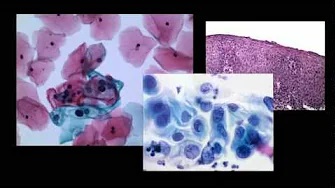Document Type
Article
Publication Date
11-1-2020
Abstract
OBJECTIVE: Despite widespread cervical screening, an estimated 13,800 women will be diagnosed with cervical cancer in the United States in 2020. To inform improvements, the screening histories of women diagnosed with cervical cancer in New Mexico were assessed.
METHODS: Data were collected on all cervical screening, diagnostic tests and treatment procedures for all women diagnosed with cervical cancer aged 25-64 yrs. in New Mexico from 2006 to 2016. Women were categorized by their screening attendance in the 5-40 months (screening interval) and 1-4 months (peri-diagnostic interval) prior to cancer diagnosis.
RESULTS: Of the 504 women diagnosed between May 2009-December 2016, 64% were not screened or had only inadequate screening tests in the 5-40 months prior to diagnosis, and 90 of 182 screened women (49%) had only negative screens in this period. Only 32% (N = 162) of cervical cancers were screen-detected. Women with adenocarcinomas were more likely to have had a recent negative screen (41/57 = 722%) than women with squamous cancers (50/112 = 45%). Both older women (aged 45-64 years) and women with more advanced cancers were less likely to have been screened, and if screened, were more likely to have a false-negative outcome. Only 9% of cancers were diagnosed in women who did not attend biopsy or treatment after positive tests requiring clinical management. Screening currently prevents 35% of cancers, whereas full screening coverage could prevent 61% of cervical cancers.
CONCLUSION: Improved screening coverage has the largest potential for reducing cervical cancer incidence, though there is also a role for improved recall procedures and screening sensitivity.
Recommended Citation
Landy R, Mathews C, Robertson M, Wiggins CL, McDonald YJ, Goldberg DW, Scarinci IC, Cuzick J, Sasieni PD, Wheeler CM. A state-wide population-based evaluation of cervical cancers arising during opportunistic screening in the United States. Gynecol Oncol. 2020 Nov;159(2):344-353. doi: 10.1016/j.ygyno.2020.08.033. Epub 2020 Sep 22. Erratum in: Gynecol Oncol. 2021 Jun;161(3):913. Erratum in: Gynecol Oncol. 2021 Dec;163(3):614. PMID: 32977987; PMCID: PMC7594931.

